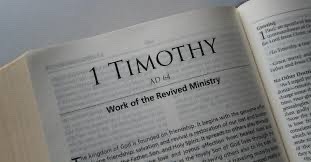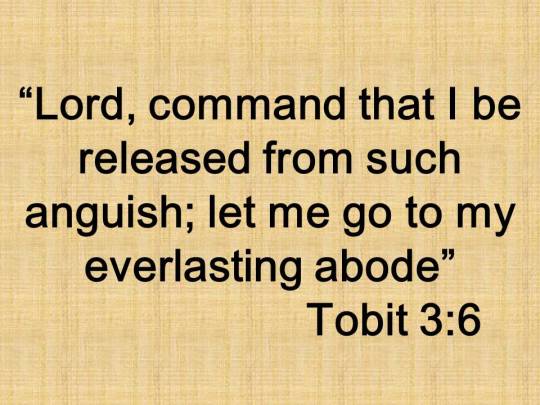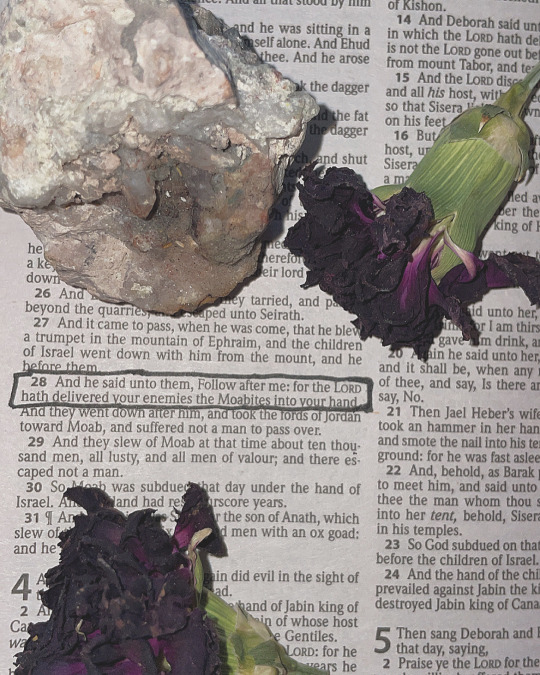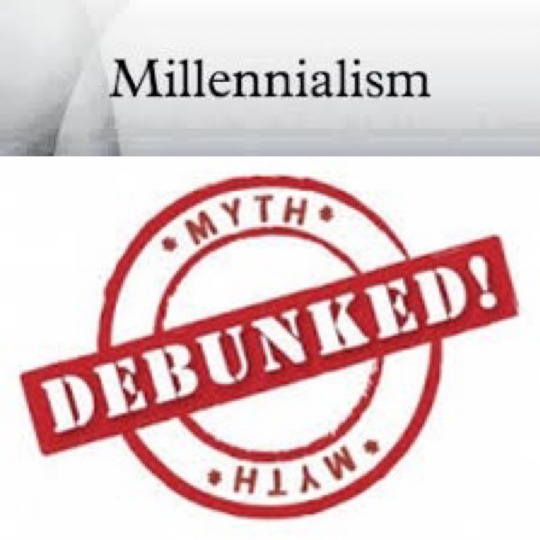#biblestudies
Text



God is my best friend🤍🕊🌸
8 notes
·
View notes
Text

Don’t be afraid to open your Bible up in public ☕️
#studyspo#studyblr#studying#biblestudies#Bible study#productivity#study motivation#inspire#coffee#ice coffee
5 notes
·
View notes
Text


There's a human soul trapped inside this dog
2 notes
·
View notes
Photo

Trust God always ✝️
#trust#trustgod#trusttheprocess#trustjesus#trustgodbro#trustgodsplan#trustgodstiming#trustjesusalways#trustjesuschrist#godhassavedme#savedbygrace#biblestudymoments#biblestudy#biblestudies#bibleresources#biblereadingchallenge#christianquote#biblebuild#biblereadingplan#biblereading#bibleverse#bible#christianquotesdaily#Backholer#ByFaithMedia#ByFaith#MathewBackholer#savedbygracethroughfaith#savedbygracealone#PaulBackholer
13 notes
·
View notes
Text

🔎 What Does the Phrase καιροῖς ἰδίοις Mean in 1 Timothy 2.6❓🔍
By Bible Researcher Eli Kittim 📚🎓
There is a mysterious phrase in the Greek New Testament which seems to suggest that the evidence for Christ’s death has not yet been demonstrated. If one considers Christ’s historicity and death as a foregone conclusion, then this terse phrase certainly questions this assumption. Let’s go a little deeper and look at some of the details. The Greek text of First Timothy 2.5-6 (SBLGNT) declares:
εἷς γὰρ θεός, εἷς καὶ μεσίτης θεοῦ καὶ
ἀνθρώπων ἄνθρωπος Χριστὸς Ἰησοῦς, ὁ
δοὺς ἑαυτὸν ἀντίλυτρον ὑπὲρ πάντων, τὸ
μαρτύριον καιροῖς ἰδίοις ·
The last clause literally means: the martyrdom/testimony [given] in its own times.
We must first understand what the Greek term μᾰρτῠ́ρῐον (martúrion) means. It actually has several meanings:
1. testimony, evidence, proof
2. martyrdom
3. shrine of a martyr
Since 1 Timothy 2.5-6 is explicitly referring to Christ’s death as a ransom (ἀντίλυτρον), it is therefore appropriate to regard the term μαρτύριον (martúrion) in this particular context both as a testimony and as a martyrdom. Let’s look at the translation of 1 Timothy 2.5-6 (KJV):
“For there is one God, and one mediator
between God and men, the man Christ
Jesus; Who gave himself a ransom for all, to
be testified in due time.”
There is something deeply perplexing about the last clause. If the testimony took place in Christ’s own time, then why will the evidence or proof be put forth “in due time”❓
According to the Merriam-Webster dictionary, the phrase “in due time” means “eventually at an appropriate time,” as in the sentence “I will answer all of your questions in due time.” Therefore, the KJV seems to suggest that the evidence establishing these facts will come at some future time period. The text is referring specifically to Christ’s death as “a ransom for all.” So, the KJV suggests that the evidence for Christ’s death will be demonstrated “in due time.” Bear in mind that this is the same English Bible translation which says elsewhere that Christ will die “ONCE IN THE END OF THE WORLD” (Hebrews 9.26b italics mine)❗️Let’s look at a cross-reference in 1 Timothy 6.14-15 (the same letter), which has the exact same phrase (καιροῖς ἰδίοις):
τηρῆσαί σε τὴν ἐντολὴν ἄσπιλον
ἀνεπίλημπτον μέχρι τῆς ἐπιφανείας τοῦ
κυρίου ἡμῶν Ἰησοῦ Χριστοῦ, ἣν καιροῖς
ἰδίοις δείξει ὁ μακάριος καὶ μόνος
δυνάστης, ὁ βασιλεὺς τῶν βασιλευόντων
καὶ κύριος τῶν κυριευόντων.
Translation (NASB):
“keep the commandment without fault or
reproach until the appearing of our Lord
Jesus Christ, which He will bring about at
the proper time—He who is the blessed and
only Sovereign, the King of kings and Lord
of lords.”
First Tim. 6.15 has the exact same phrase that we find in 1 Tim. 2.6, namely, καιροῖς ἰδίοις, and in this particular context it is a reference to “the appearing of our Lord Jesus,” which elsewhere is called “the revelation of Jesus Christ” (1 Cor. 1.7; 1 Pet. 1.7, 13; Rev. 1.1)❗️Here, the Greek phrase καιροῖς ἰδίοις means “at the proper time” or, more accurately, “in its own times” (YLT). And it refers to the future revelation of Jesus in his own time❗️
But if 1 Timothy was written at the end of the first century——and the evidence for Christ’s death had already, presumably, been demonstrated in the New Testament books——why would the author insist that the proof of Christ’s death comes “in its own times”❓It doesn’t make any sense. If Jesus died ca. 30 AD, and the writer of 1 Timothy is writing at around 100 AD, 70 years later, then why would the testimony of Jesus’ death be given at the proper time, or in Christ’s own time❓The author doesn’t say that the testimony was already given but rather suggests that it will be given in due time❗️In other words, why isn’t the testimony given right then and there❓Or, why isn’t the testimony considered as something that was already given in the past about the occurrence of a previous event❓
Readers often read 1 Timothy 2.6 and ignore the last clause, or they skip it as if it doesn’t really mean anything. But it does❗️In fact, it is the 🔑 key to understanding the passage. First Timothy 2.5-6 (NASB) reads:
“For there is one God, and one mediator also
between God and mankind, the man Christ
Jesus, who gave Himself as a ransom for
all, the testimony given at the proper time.”
Notice how the last clause is translated in modern Bible versions. Most versions translate it correctly, without committing the clause to a past reference point, thereby suggesting that the evidence for Christ’s death is given in Christ’s own time (whenever that is…).
The New International Version gets it horribly wrong. The editors are clearly basing their translations on their theological bias. Nowhere does the Greek text say that the testimony “has now been witnessed.” Yet that’s what the NIV says at 1 Tim. 2.6:
“This has now been witnessed to at the
proper time.”
Unfortunately, that is unsubstantiated by the Greek text, which reads:
τὸ μαρτύριον καιροῖς ἰδίοις ·
However, most of the modern Bible translations actually get it right:
ESV - “which is the testimony given at the
proper time.”
KJV - “to be testified in due time.”
ASV - “the testimony to be borne in its own
times.”
DRB - “a testimony in due times.”
YLT - “the testimony in its own times.”
Conclusion
Hebrews 9.26b (KJV) says that Jesus will die “once in the end of the world.” First Peter 1.20 (NJB) says that Christ is “revealed at the final point of time.” Revelation 12.5 says that the Messiah is born in the end times. Acts 3.19-21 says that the Messiah cannot come “until the period of restoration of all things.” Galatians 4.4 says that Christ is born in “the fullness of the time,” which Eph. 1.9-10 defines as the consummation of the ages❗️Moreover, the auditory and visual impressions of the transfiguration narrative in 2 Peter 1.16-18 constitute an apocalyptic *prophecy,* which is revealed in verse 19:
“so we have the prophetic word made more
sure, to which you do well to pay attention
as to a lamp shining in a dark place.”
What is more, 1 Timothy 2.6 (written at ca. 100 AD) says that Christ’s death is meant “to be testified in due time.” The author is certainly NOT referring to 70 years prior to the time that he penned this letter (i.e. ca. 30 AD)! Therefore, it's perplexing why this mysterious phrase “to be testified in due time” is inserted in the text, and what is its temporal implication. That’s because it implies that the testimony of Christ’s death seems to be forthcoming rather than being already available❗️
#1Timothy2v6#καιροῖςἰδίοις#το_μικρό_βιβλίο_της_αποκάλυψης#apocalyptic#biblestudies#koineGreek#μαρτύριον#ελικιτίμ#SBLGNT#martyrdom#atthepropertime#historical jesus#thelittlebookofrevelation#bible translation#testimony#εκ#Greekgrammar#elikittim#ek#NewTestamentGreek#in due time#initsowntimes#kjv#evidence#the_jesus_prophecy#biblical exegesis#GreekNewTestament#biblicaleschatology#bible interpretation#bibleprophecy
4 notes
·
View notes
Photo

The Argument From Demonology: A Series In Analytical Apologetics (on Wattpad) https://www.wattpad.com/1404398152-the-argument-from-demonology-a-series-in?utm_source=web&utm_medium=tumblr&utm_content=share_reading&wp_uname=ValerieLynnStephens&wp_originator=r%2FvWe62B%2BxUCp89z4xEmWi9hYIINekwI9OtK4ee314kyxerd8UWBIfYQaqBZMp8SKODJQGJbyYh7YJMU33966bm%2BElaaVPYxmAwl9XhoNxZNPDhf0gavD3I78vb4xgnY This series explores the argument for God's existence through contrasting it with the darker aspects of the human condition & experience. It seeks to synthesize Atheism with Agnosticism, & ultimately, reveal the sovereignty of Judeo-Christian Monotheism.
#agnostic#agnosticism#apologetics#atheism#atheist#bible#biblestudies#christianity#demonology#judeo-christianity#philosophy#religion#scripture#scriptures#theology#truth#spiritual#books#wattpad#amreading
0 notes
Video
youtube
What Live By Faith Means - Bible Study - Shining The Light Ministries - ...
#youtube#bible study#bible#christian living#christian faith#christianity#christian#christians#bible verse#bible scripture#biblestudies#biblestudy#southern baptist#baptist#baptist church#southernbaptist#southernbaptistchurch#southern baptist convention#jesussaves#faith in jesus#jesus christ#jesus#faith#faith in god#romans 1:17#kjvonly#kjvbible#kjv#kjb#church
0 notes
Text
The Book of Tobit is not a book that deals with the life or the teachings of a prophet, nor is it a book that tells the story of a king or a historical character; the Book of Tobit is like the Book of Job or the book of Ruth, is a book written with the idea of leaving us a specific ethical or moral message that should be discovered with his reading, and to edify the reader in the knowledge of God.
The Book of Tobit begins the story by telling us that Tobit was an Israelite faithful to the law of God, but that he was deported to the city of Nineveh by the Assyrians. In that city, as a God-fearing man, Tobit did works of mercy, for which he was persecuted, and he feared for his life.
And for this reason, the character of Tobit has some similarities with Job, both had their stories in oppressive environments, where corruption and evil seemed the general rules; and this is why Tobit's prayer, a prayer laden with great suffering, bears great resemblance to Job's speeches in his book. In the texts of Tobit and Job, we verify a deep spiritual teaching: "Surely oppression drives the wise into madness" Ecclesiastes 7:7.
The book also tells us that Tobit suffered from an illness that, despite medical care, left him blind for which he had to depend on work and the care of his wife, and thus, loaded with affliction in his heart, he asked God to end his life:
"So now, deal with me as you please;
command my life breath to be taken from me,
that I may depart from the face of the earth and become dust.
It is better for me to die than to live,
because I have listened to undeserved reproaches,
and great is the grief within me.
Lord, command that I be released from such anguish;
let me go to my everlasting abode;
do not turn your face away from me, Lord.
For it is better for me to die
than to endure so much misery in life,
and to listen to such reproaches!" Tobit 3:6.
These facts have a great spiritual teaching, first, being good does not mean that bad things do not have to happen, second, we must be people prepared for everything in life, and third, when oppression is an overwhelming force, what remains is the trust in God and perseverance.
The book ends by telling us that God rewarded Tobit's perseverance, healing him through an angel, and making him prosper, and giving him happiness during the last years of his life.

0 notes
Text

it’s been awhile….
#self love#self healing#inner healing#inner child healing#shadow work#take care of yourself#self worth#healing#return to sender#jesus christ#no bad vibes#faith in god#bible quote#biblestudies#bible study
1 note
·
View note
Text
#aesthetic#aesthetic bible#aesthetic christian#aesthetic sign#bible study#aesthetic wallpaper#christian#free bible study#aestehtic#holy bible#bible#christian blog#christian bible#freebiblestudy#free#biblestudies
1 note
·
View note
Text

The Book of Exodus
Biblical Studies & Life Applications
Sunday, February 26, 2023, at 7:00 PM EST on FB Live.
0 notes
Text
Today's livestream
0 notes
Text

Why is my dog fucked up
1 note
·
View note
Photo

Thank You for saving me Lord ✝️
#Salvation#godsword#God#Jesus#InstaGod#Christianity#IamSaved#godsplan#godsprotection#godspromises#godspromise#biblestudies#biblestudymoments#bibleresources#biblereading#bibleverse#biblebuild#bible#savedbygracealone#prayerlife#praying#pray without ceasing#prayers#prayer#Backholer#ByFaithMedia#ByFaith#MathewBackholer#PaulBackholer#SavedbyGrace
3 notes
·
View notes
Text

🚫 Millennialism Debunked
By Eli Kittim
The Contradictions of Millennialism
Millennialism is a belief that there will be a paradise here on earth before the final judgment. There are, of course, various scriptural discrepancies within this view, as I have often pointed out in my other papers. For example, how will people live here on earth if the earth itself will be destroyed in a great conflagration? 2 Pet. 3.10 reads:
“the heavens will pass away with a loud
noise, and the elements will be dissolved
with fire.”
Besides, there are other contradictions. For instance, how could the same people who would not be resurrected “until the thousand years were completed” (Rev. 20.5) simultaneously live and reign with Christ for a millennium? (Rev. 20.4). They cannot be both dead and alive at the same time! There are other contradictions as well. For example, Millennialism directly contradicts scripture by implying that there will be at least 2 additional comings of Christ, 2 appearances by Satan, 2 Great Wars, 2 Great tribulations, 2 resurrections, 2 apocalypses, 2 Armageddons, 2 judgments, 2 Great Ends, and so on. This is preposterous. In Scripture, there is only one of each. Scripture mentions only one resurrection (Dan. 12.2) and only one Armageddon (Rev. 16.16)! Where else does it mention a second resurrection or a second Armageddon? Besides, 1 Thess. 4.17 says that after the rapture “we will be with the Lord forever,” not just for 1,000 years. And the Book of Daniel is clear that both the Saved and the Damned will be resurrected simultaneously, not successively (12.2). Therefore, this DOUBLING of scriptural events is unwarranted and without merit! It is worth mentioning that the doctrine of millennialism was formally condemned at the Second Ecumenical Council in 381 AD.
Millennialism Repeats Events a Second Time; But Revelation is Recording Single Events
The same event that is mentioned in Ezekiel 38 is repeated in Revelation 20. The endtime Gog/Magog war that Satan is said to unleash at the end of the millennium (Rev. 20.8) is the exact same Gog/Magog war that is mentioned in Ezekiel 38, which is also alluded to in Luke 21.20! The Book of Revelation isn’t saying that the exact same Gog/Magog war of Ezekiel will repeat 1,000 years later. That’s ridiculous. It’s actually talking about one and the same Gog-Magog war; not 2. In fact, the phrase that is used to indicate that Satan will be released “for a little while” (Rev 20.3) is actually a reference to the Great Tribulation, which only lasts for “a little while,” namely, only 3 and a half years, or 42 months, or 1,260 days, or a time, and times, and half a time (cf. Rev. 11.2; 12.6, 14; 13.5)!
Moreover, the narrative in Rev 19 & 20 is basically telling the reader what will happen when God no longer restrains Satan (see 2 Thess 2.7)——that is, when the restrainer is removed——and the Antichrist is finally revealed at the end of a thousand years. That’s when Satan will be unleashed, once and for all, to wreak havoc “for a little while” (i.e. for 3 and a half years, during the Great Tribulation)!
Why would the Book of Revelation REPEAT the exact same story TWICE, like the film “Edge Of Tomorrow”? Why would Satan (Incarnated; Rev. 12.9) come out TWICE “to deceive the nations at the four corners of the earth [from the exact same location, Gog & Magog (Ezekiel 38)] in order to gather them for the [exact same] battle” (Rev. 20.7-9)? And why is it that “fire came down from heaven and consumed them” (Rev 20.9) exactly as it did in Ezekiel 38.22? And why is it that they “surrounded the camp of the saints and the beloved city” exactly as they did in Luke 21.20? Are you kidding me? What is this, a repeat of “Groundhog Day”?
There’s an Interpretive Mixup: Millennialists Conflate Scenes that Occur Before 1,000 Years with Scenes that Occur After 1,000 Years
If Jesus appears BEFORE the millennium on a white horse, and the beast and his armies are killed, and the beast is then captured and “thrown alive into the lake of fire” (Rev 19.19-21), then how does Satan manage to escape “the lake of fire” and mount a comeback? Notice that following Christ’s FIRST encounter with the Beast, BEFORE the millennium (Rev. ch. 20), the Beast was captured & immediately “thrown alive into the lake of fire” (Rev. ch. 19)! But the lake of fire is the second death! It’s game over! No one survives the lake of fire and comes back to to tell stories about it. That’s another red flag. It would be a scriptural contradiction to state that AFTER being “thrown into the lake of fire,” the Antichrist escaped and mounted a comeback. That would constitute a scriptural contradiction. Notice the description of the “lake of fire” in Rev. 20.14:
“Then Death and Hades were thrown into the
lake of fire. This is the second death, the
lake of fire.”
This event is final! It is the final separation of life and death. So, it’s completely bogus to say that Satan survived the lake of fire in chapter 19 & came back physically to fulfill chapter 20. It’s complete nonsense! Moreover, Satan’s activities in Rev. 20 suggest that he’s incarnate, otherwise how does a nonphysical being fight a war on earth? Besides, Rev. 12.9 tells us that Satan will be incarnated on earth! So, the Millennialists are mixing apples with oranges. They’re conflating scenes that happen BEFORE the 1,000 years (Rev. 19) with scenes that take place AFTER the 1,000 years (Rev. 20)! And if the description in Rev 20.10—-concerning what happens to Satan AFTER the supposed 1,000 years——turns out to be the exact same version of Rev 19.20—-about what happens to Satan BEFORE the 1,000 years——then we obviously have one story, not two!
Conclusion
The Bible never mentions the alleged “thousand-year reign of Christ on earth.” Only 2 verses mention those who “reigned with Christ a thousand years.” These are temporal signs that reveal the timing of Christ’s coming and of the apocalyptic events! In other words, when the thousand years are completed, Satan will be loosed for a little while (a reference to the 3 and a half year Great Tribulation). Then, the resurrection will occur, followed by the rapture, and the believers will henceforth reign with Christ forever!
#Millennialism#chiliasm#millenarian#a thousand years#millennium#amillennialism#gogmagog#great tribulation#satan#armageddon#elikittim#thelittlebookofrevelation#lake of fire#second death#finaljudgment#resurrection#eisegesis#ελικιτίμ#το μικρό βιβλίο της αποκάλυψης#onethousandyears#χιλιετισμός#biblestudies#biblicalinterpretation#whos_who_in_bible_prophecy#ek#rapture#apocalypse#christian apologetics#bible prophecy#book of revelation
3 notes
·
View notes
Photo

Within a few years after Jesus' crucifixion, his followers were celebrating mass. They showed their acceptance that Jesus had come back to life by magically bringing him back to life again in the form of blessed bread & wine, which they then ate and drank, believing it to be his flesh and blood. This ritual which later critics would attack as cannibalistic may, like so many Christian practices, have originated from the Essens. #christianity #biblestudies #essens #cannbalism #rituals #religion https://www.instagram.com/p/Cm_4rB-JFjp/?igshid=NGJjMDIxMWI=
0 notes